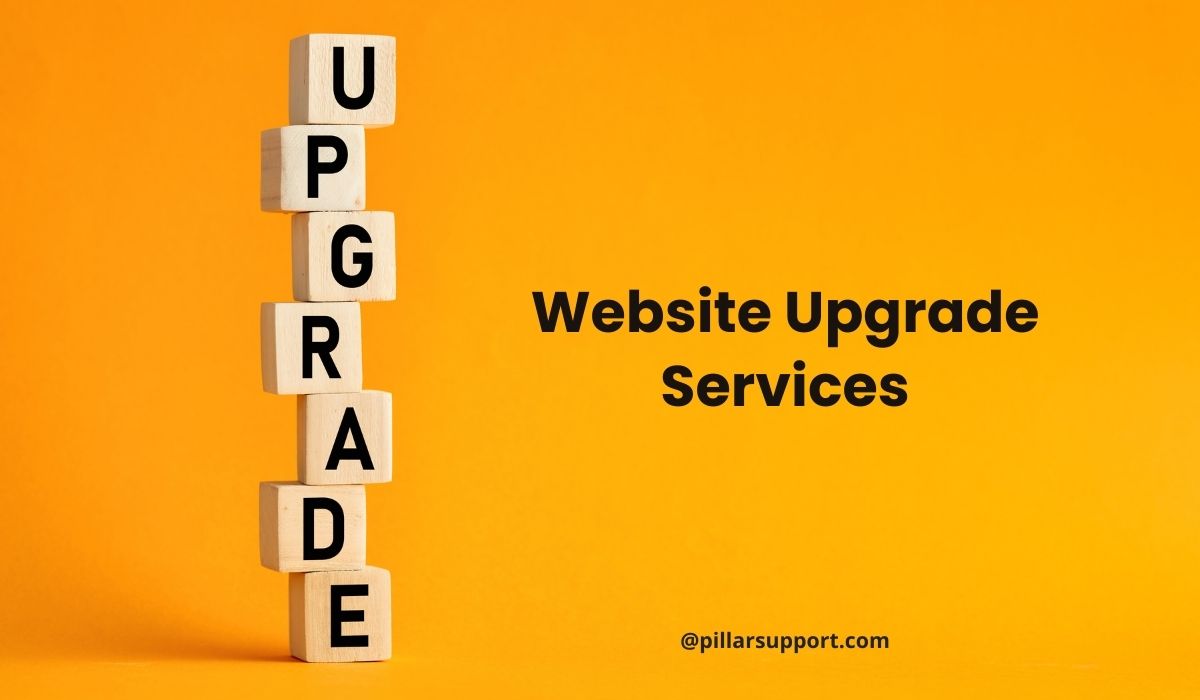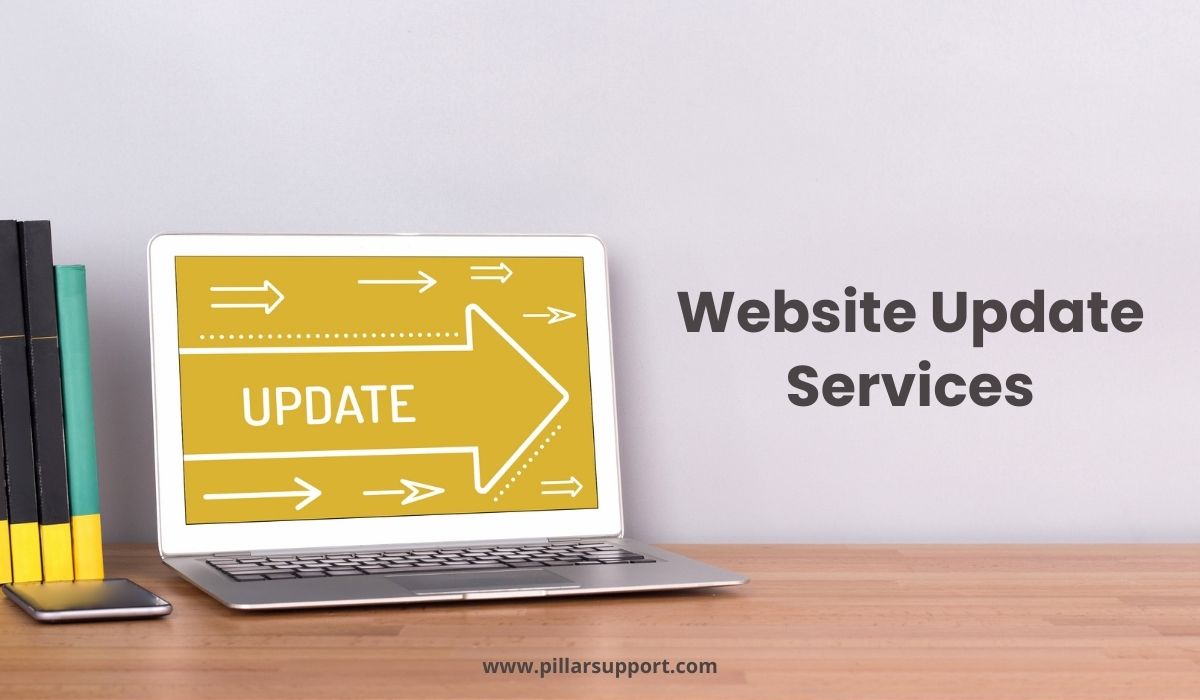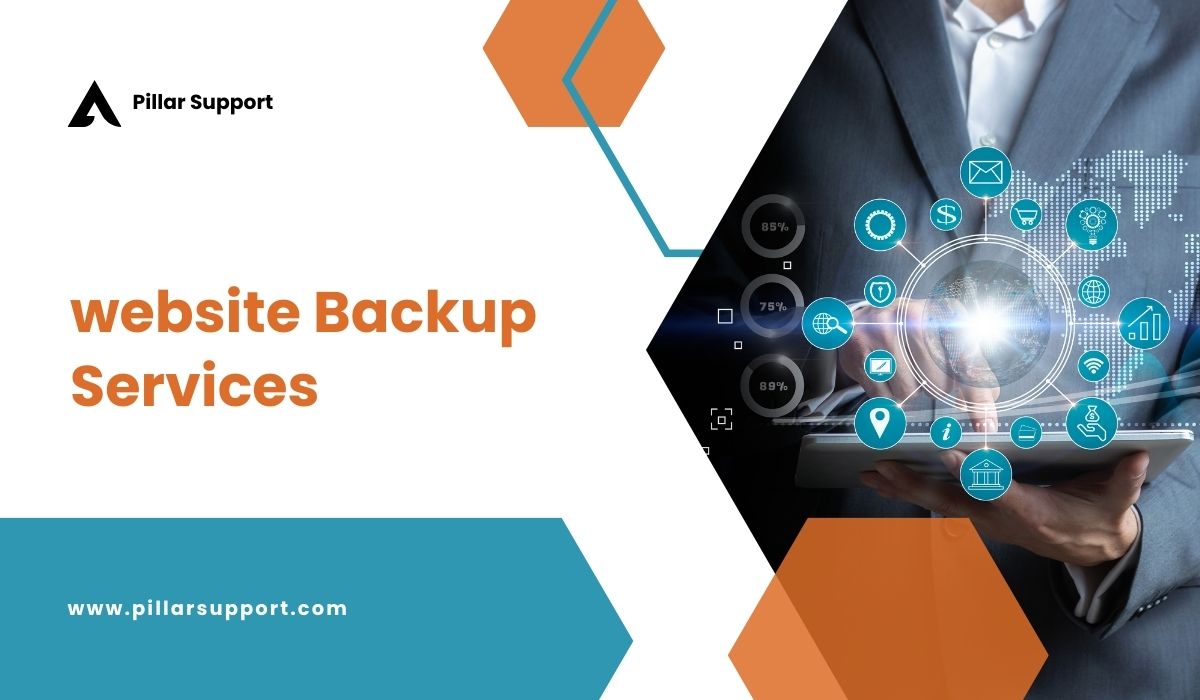Elevate Your Online Presence with Expert Website Upgrade Services
Website upgrade services are essential for businesses and individuals looking to enhance their online presence. These services focus on improving the performance, functionality, and user experience of a website.
By investing in website upgrade services, you can ensure that your website remains up to date with the latest technologies, design trends, and security measures.
In this article, we will explore the benefits of website upgrade services and how they can help you stay ahead in the digital landscape.
Table of Contents
The Significance of Website Upgrades
Regular website upgrades are crucial for maintaining the security, functionality, and user engagement of your website. Here’s why:
- Security: Cyber threats are constantly evolving, and outdated websites are more vulnerable to attacks. Regular upgrades ensure that your website has the latest security measures in place, including security patches, encryption protocols, and secure coding practices. By keeping your website up to date, you can protect sensitive data, prevent unauthorized access, and safeguard your reputation.
- Functionality: Technology is constantly advancing, and user expectations are continually evolving. Regular upgrades allow you to incorporate new features, enhancements, and improvements to your website’s functionality. This ensures that your website remains competitive, provides a seamless user experience, and meets the changing needs of your audience.
- User Engagement: A well-designed and user-friendly website is essential for attracting and retaining visitors. Regular upgrades allow you to improve the design, layout, and navigation of your website, making it more intuitive and visually appealing. By incorporating user feedback and implementing new features, you can create a seamless and enjoyable browsing experience for your users, increasing engagement and satisfaction.
- Compatibility: As technology evolves, web standards and browser requirements change. Regular upgrades ensure that your website remains compatible with the latest browsers, devices, and operating systems. This allows your website to display correctly and function seamlessly across different platforms, ensuring a consistent user experience for all visitors.
- Performance: Website performance is crucial for user satisfaction and search engine rankings. Regular upgrades often include performance optimizations, bug fixes, and code optimizations that improve the speed, responsiveness, and overall performance of your website. This leads to faster loading times, smoother navigation, and a better overall user experience.
Regular website upgrades are essential for maintaining the security, functionality, and user engagement of your website. By investing in upgrades, you can ensure that your website remains secure, competitive, and optimized for a seamless user experience.
Types of Website Upgrade Services
Content Management System (CMS) Updates
Keeping your CMS up-to-date is crucial for seamless website management and security. CMS updates often include bug fixes, security patches, and new features that enhance the functionality and performance of your website. By regularly updating your CMS, such as WordPress or Joomla, you ensure that your website remains secure, stable, and compatible with the latest web standards.
Plugin and Extension Updates
Plugins and extensions add additional features and functionality to your website. It’s important to keep them updated to ensure compatibility with the latest version of your CMS and to benefit from new features and security enhancements. Regularly updating plugins and extensions helps prevent vulnerabilities and ensures that your website runs smoothly.
Design and Layout Enhancements
A refreshed design can greatly improve user engagement and modernize your website. Upgrading the design and layout of your website can include updating the color scheme, typography, imagery, and overall visual aesthetics. By incorporating modern design trends and user-friendly layouts, you can create a visually appealing and intuitive browsing experience for your visitors.
Performance Optimization
Website speed and responsiveness are crucial for user satisfaction and search engine rankings. Performance optimization upgrades focus on improving the loading speed, reducing page size, and optimizing code and scripts. Techniques such as caching, image optimization, and code minification can be employed to enhance the performance of your website and provide a seamless browsing experience.
Integration of Advanced Features
Adding new features to your website can enhance its overall functionality and user experience. This can include integrating advanced features such as e-commerce capabilities, social media integration, interactive forms, chatbots, or personalized user experiences. By incorporating these advanced features, you can provide a more engaging and interactive experience for your visitors.
Infrastructure Upgrades
Infrastructure upgrades involve updating the underlying technologies that power your website. This can include updating coding languages (e.g., PHP), database systems (e.g., MySQL), or server configurations. These upgrades ensure compatibility, security, and performance optimization, keeping your website up to date with the latest industry standards.
At Pillar Support, we offer comprehensive website upgrade services that cover all these aspects. Our team of experts is experienced in handling various types of upgrades, ensuring that your website remains secure, up to date, and optimized for a seamless user experience.
Benefits of Choosing Pillar Support for Website Upgrade Services
Choosing Pillar Support for your website upgrade services offers several key benefits. Here’s why you should consider us as your trusted partner:
- Professionalism: Pillar Support has a team of experienced professionals who specialize in website upgrades. We have extensive knowledge of the latest technologies, design trends, and security practices. Our team stays updated with industry advancements to ensure that your website receives the most effective and modern upgrades.
- Comprehensive Services: We offer a wide range of website upgrade services, including CMS updates, plugin and extension updates, design and layout enhancements, performance optimization, integration of advanced features, and infrastructure upgrades. Our comprehensive approach ensures that all aspects of your website are addressed, resulting in a modern, functional, and secure online presence.
- Customized Solutions: We understand that every website is unique, and one-size-fits-all approaches may not be suitable. At Pillar Support, we take the time to understand your specific requirements and tailor our upgrade solutions accordingly. We work closely with you to ensure that the upgrades align with your goals and objectives, providing customized solutions that meet your needs.
- Commitment to Quality: At Pillar Support, we are committed to delivering high-quality website upgrades. We follow industry best practices, adhere to strict quality standards, and conduct thorough testing to ensure that the upgrades are implemented accurately and effectively. Our attention to detail and commitment to quality result in a seamless and successful upgrade process.
- Ongoing Support: Our relationship with you doesn’t end after the upgrades are completed. We provide ongoing support to address any questions or concerns you may have post-upgrade. Our team is always available to provide assistance, offer guidance on website maintenance, and address any future upgrade needs that may arise.
Choosing Pillar Support for your website upgrades means benefiting from our expertise, comprehensive services, customized solutions, commitment to quality, and ongoing support. With Pillar Support as your partner, you can trust that your website will be modern, functional, and optimized for success.
How Pillar Support Executes Website Upgrade Services
At Pillar Support, we employ a systematic approach and utilize advanced technologies to ensure seamless website upgrades. Here’s how we execute website upgrades:
- Planning and Analysis: We begin by thoroughly understanding your website and your specific upgrade requirements. Our team conducts a comprehensive analysis of your current website structure, functionalities, and design. This helps us identify areas that need improvement and determine the best approach for the upgrades.
- Testing and Staging Environment: Before implementing any upgrades on your live website, we create a testing and staging environment. This allows us to perform thorough testing of the upgrades without affecting your live site. We ensure that the upgrades are compatible with your existing website components and functionalities.
- Backup and Restore: Prior to implementing any upgrades, we take a complete backup of your website. This ensures that in case of any unforeseen issues, we can easily restore your website to its previous state. This backup provides an added layer of security and peace of mind during the upgrade process.
- Version Control: We utilize version control systems to manage the codebase of your website. This allows us to track changes, collaborate efficiently, and roll back to previous versions if needed. Version control ensures that the upgrade process is organized, transparent, and reversible.
- Incremental Upgrades: Depending on the complexity of the upgrades, we may implement them in incremental steps. This approach minimizes the risk of disruptions and allows us to closely monitor the impact of each upgrade. It also enables us to address any issues promptly and ensure a smooth transition.
- Quality Assurance: We conduct rigorous testing at each stage of the upgrade process. Our team performs functional testing, compatibility testing, and performance testing to ensure that the upgrades work seamlessly and meet your requirements. We also conduct cross-browser and cross-device testing to ensure a consistent user experience.
- Communication and Transparency: Throughout the upgrade process, we maintain open communication with you. We provide regular updates on the progress of the upgrades, address any concerns or questions you may have, and seek your feedback. We value transparency and ensure that you are well-informed and involved throughout the upgrade process.
By employing these methods and technologies, Pillar Support ensures that website upgrades are executed seamlessly, minimizing disruptions and delivering a modern and functional website.
Contact Pillar Support for Help
Are you ready to take your website to the next level? Look no further than Pillar Support! Our team of experts is here to help you with all your website upgrade needs. Whether you’re looking to revamp your design, improve functionality, or optimize for better performance, we’ve got you covered.
Don’t miss out on the opportunity to enhance your online presence and attract more visitors. Contact us today to discuss your project and get started on your website upgrade journey. You can reach us by visiting our website at “Contact Page” or by filling out the contact form on our website. We can’t wait to hear from you and help you achieve your website goals!
Frequently Asked Questions
What is a Website Upgrade?
A website upgrade refers to making improvements or enhancements to an existing website. This can include various aspects such as design, functionality, performance, security, and user experience. The goal of a website upgrade is to enhance the overall quality and effectiveness of the website.
Should I Upgrade My Website?
Deciding whether to upgrade your website depends on several factors. Here are a few considerations:
a. Outdated design: If your website looks outdated or doesn’t align with your brand image, a website upgrade can help you create a modern and visually appealing design.
b. Poor functionality: If your website has broken links, slow loading times, or lacks essential features, upgrading can improve user experience and make it more user-friendly.
c. Mobile responsiveness: With the increasing use of mobile devices, having a mobile-responsive website is crucial. If your current website is not optimized for mobile devices, upgrading can ensure it is accessible and functional across all devices.
d. SEO optimization: If your website is not ranking well in search engine results, upgrading can include implementing SEO best practices to improve visibility and attract more organic traffic.
e. Security concerns: If your website lacks proper security measures, upgrading can help protect your website and user data from potential threats.



